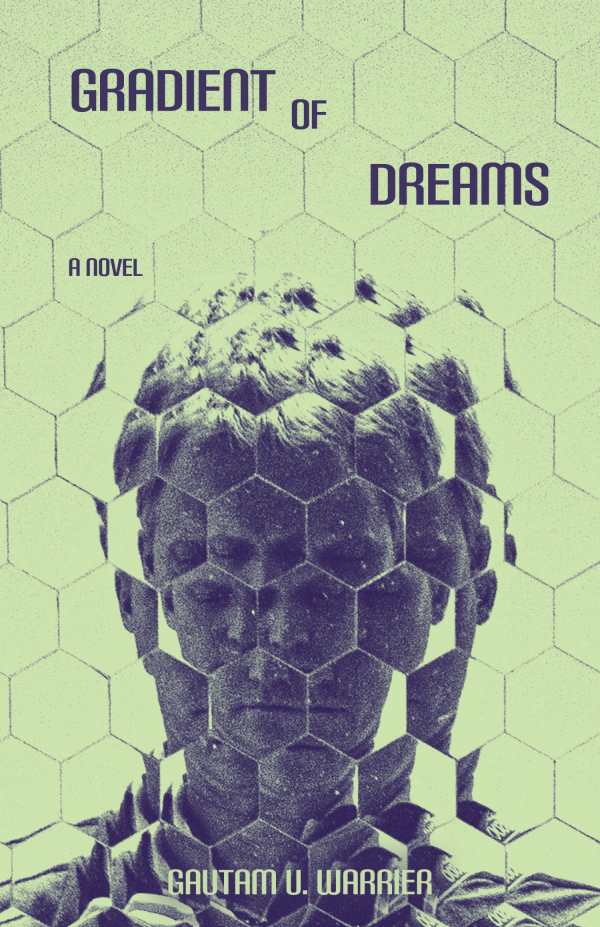Gradient of Dreams
In the heady and provocative science fiction novel Gradient of Dreams, arguments are made on behalf of, and against, advancements in AI.
Gautam U. Warrier’s contemplative science fiction novel Gradient of Dreams is about the ethics of artificial intelligence.
After rapid advancements in the field of artificial intelligence, society at large grapples with the question of how far technology should be pushed. For Icarus, a gifted inventor and philosopher who has bionic eyes following a past trauma, the answer is: toward utopia. Indeed, because Icarus experienced technological advancements as a blessing, he has grandiose plans of ensuring that blessings are all that come of further progress. Thus, he works with a team of respected scientists and engineers to build a super intelligence, Augment, with the purpose of connecting all people for their mutual betterment. His idealistic team in this work includes Satya, a prodigy who escaped an abusive home and who searches for knowledge and purpose, and Kobayashi, who left a scientific career to pursue a monastic life before being pulled back toward science.
Working against Icarus’s designs, though, is the government agency OPERA. Tasked with policing worldwide threats, it dubs Augment “Phoenix.” Despite the good intentions behind Icarus’s work, OPERA views Augment as a threat, and it tasks its top agent, Minerva, with stopping Augment.
Beyond the technological espionage at its center, the story is driven forward by intense debates, as about how artificial intelligence impacts humanity. These are held between an array of scientists, inventors, and professors. Ethical questioning also occurs behind the scenes: Minerva, who was once Icarus’s lover, is pulled between defending his moral character and adhering to her professional duty.
Often, though, the questions raised about Augment and its implementation run several pages in length. Further, these discussions carry most of the book, making for a slow pace. Even the scenes involving OPERA officials have an ethical bent. In them, various government officials play investigative roles, seeking out the expertise and opinions of judges, educators, and the president of the United States about Augment and technological advancement concerns.
The book’s philosophical exchanges take place in several settings across the world, including hiking trails on mountain ranges, temples, and halls of academia and law in the United States. As a result, the story often feels as far-reaching as the aims of Augment itself, paralleling the project’s proposal to bridge distances between people. However, the characterizations are somewhat limited to the concerns of the project, as when people’s background stories begin with flashbacks to their first meetings with Icarus. Indeed, the cast’s ideals and loyalties to the inventor are central to their development. All involved with Augment have their senses of purpose wrapped up in it. At their opposite, stoic Minerva is also fleshed out most in terms of her dedication to OPERA. Her story is limited to work: high-priority meetings with government officials, academic discussions, and tracking down leads.
The debates around Augment guide the story toward a bittersweet conclusion. As the cast and their ambitions fall into disarray, the story ends with more questions than answers. Still, the weight of the unknowns around artificial intelligence is felt, as is the weight on the shoulders of its creators.
Gradient of Dreams is a fascinating science fiction novel in which morality and human advancement clash.
Reviewed by
Brandon Pawlicki
Disclosure: This article is not an endorsement, but a review. The publisher of this book provided free copies of the book and paid a small fee to have their book reviewed by a professional reviewer. Foreword Reviews and Clarion Reviews make no guarantee that the publisher will receive a positive review. Foreword Magazine, Inc. is disclosing this in accordance with the Federal Trade Commission’s 16 CFR, Part 255.

